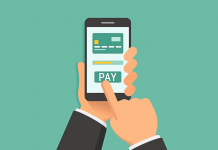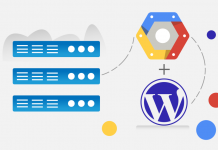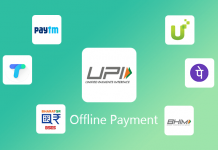We surf the Internet for hours per day. Whether it’s work, entertainment, or personal stuff, surfing the web has become a big part of our lives. But, it’s not without at least a bit of risk. There’s been a massive increase in ransomware attacks in the past few years, resulting in stolen personal and financial data.
The good news is that you don’t need expensive software to keep yourself protected online. There are some golden rules everyone can follow to stay safe and keep their personal data safe and secure. Below you can check out our recommendations that will you stay safe while surfing the Internet.
Set a Strong Password
Setting a strong password at online casinos or other sites where you must register is a no-brainer. When registering at online casinos, always use the strongest password possible. After all, you’ll be playing casino games with your money, so you don’t want your financial or private data to be stolen. Imagine having made a few casino deposits and someone playing through your it? Why rob yourself of the opportunity to win at slots or casino games? This is why you need to set a strong password at online casinos and other sites where you must register.
Don’t use your name, birthday, your surname or any combination of them. Never use web password generators as they might store the data you enter. The more complex a password you can think of, the better. An abstract password with upper and lowercase letters, special characters, and numbers would be a great idea. You can store in offline in a word document or a notepad file so it stays off the reach of hackers.
Use a Safe Browser
First things first – if you want to stay safe while surfing the Internet, you need a safe browser. Firefox are a great option, and so is Brave. Google Chrome has added a lot of safety features over the years, and Microsoft’s Internet Explorer replacement—Edge—is a good option too.
When you share personal data online, your activity and details may be sold to the highest bidder. This is why you need to use browsers with advanced SSL encryption. Most browsers are capable of strong encryption such as 128-bit or higher, the most commonly used one. Stick to the recommended browsers and don’t download others. Many software companies have their own browsers, but since there aren’t too many details about their level of security, it’s best to use a safe browser.
Don’t Share Personal Information
You should be very cautious about sharing your personal data online. Most sites where you can sign up will require personal details to create your account. That’s normal, but unless you trust the website, you shouldn’t share personal data. Companies have been known to sell your data as a product, and that’s how it can end up online.
If you read the site’s terms, you can find information if it collects your data and shares it with third parties through trackers. This is usually done for advertising purposes. The data sold contains detailed information about your location, work, home, and shopping habits. Denying the site’s access to your location is a natural step if you don’t want to share such information.
The safest browsers will ask if you want to allow geo-access to a website. If it’s a trusted website, you can do it. But, if you’re joining or browsing a new website, it’s best to block this access when prompted.
Use 2FA Whenever Possible
2FA, short for Two-Factor-Authentication, is a great option that verifies your identity through a second step. For example, sites that use it will need an extra step besides your password to verify you are who you say you are. The second step is completed via email or SMS codes which you must type or copy-paste in a required field to enter the website.
To make things safer, these codes have an expiry date. They might last for 30 or 60 seconds, so enter them as soon as you receive them.
Be Careful with Email Attachments
You might receive an email from time to time that has an attachment about a product or service which can be a phishing scam. Hackers can mimic the best companies by creating email accounts that look just like the real deal. Always check the source and if there’s even one letter missing, you best don’t open that mail or download an attachment.
When you open such an attachment, it’ll run a script on your computer that can do whatever it was developed to. For example, it might collect personal data, delete files, or give the hacker access to your PC. You should never download attachments automatically. Pay close attention to the sender and if anything looks off, don’t open that email. Better safe than sorry.
Never Click on Pop-Ups and Ads from Unknown Websites
Here’s a scenario – you’re browsing a new entertaining site when suddenly an ad pop-ups asking you to click to continue. Or it might not have a close button. In that case, the ad is most likely a scam that contains malware. Clicking on it would be inviting hackers to your personal data.
Most of these pop-ups can be avoided by updating your browser. Nowadays, the safest browsers can block such ads and keep users safe. Additionally, you can install trusted ad blockers, some of which may come with non-tracking settings. There’s a lot of software that can keep you safe online, and you shouldn’t hesitate to add it to your arsenal.
Never Use Your Browser as a Password Safe
We admit it – it’s a neat feature. The only problem with using your browser as a password safe is that hackers can get your logins for all the websites you visit in one try. Decrypting the password data is not nearly as hard as you think for seasoned hackers. Instead of using your browser to store the dozens of passwords, either store them offline or use paid software.
There are plenty of password managers that can organize the clutter and keep your passwords truly encrypted.
Avoid HTTP Sites
HTTP is the web’s default protocol which allows browsers to request web pages from servers. However, it’s also an outdated protocol based on plaintext. For the non-tech-savvy readers, it means it’s not encrypted in any way. The good news is that the there is an alternative – HTTPS.
The new protocols is built on principles such as integrity, confidentiality, and authentication. The top browsers will warn you that a site isn’t HTTPS, and that should be your cue to leave the site and keep your personal data safe and sound.







































